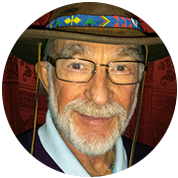Raised in a family of scientists, I grew up with the idea that truth was never absolute, and no truth was sacred. Knowledge would be strengthened, not weakened, by being challenged. For that to work required an open mind ready to receive new ideas, a critical ability to evaluate the likelihood that new ideas were correct, a commitment to explore unfamiliar ideas that seemed to pose real challenges to established thought patterns, and a willingness to be wrong.
I majored in mathematics as an undergraduate, pleased with the rigor it brought to thought and the idea that a series of logical steps could lead to an unassailable conclusion. On the advice of a vocational guidance counsellor, I left mathematics and “pure” science to pursue a career in medicine. My choice of family practice was based on two premises: first, that there was no part of medical practice that I did not enjoy, and family practice offered me an opportunity not to have to leave anything behind; second, that the emerging science of ecology had something to teach us about health care as well – people needed to be cared for in the context of family and community. This dictum of ecology – that an individual being makes sense only in the context of its ecology – has continued to drive much of my thinking.
After nearly 25 years of practice in rural Northern California (Mount Shasta City), I left my practice, my partners and my community to pursue a career in healthcare administration. I felt that administrative issues were going to intrude more and more into the relationship between patients and physicians and thought that a competent administrator should also understand the nature of the patient-physician relationship in order to help the system to work better. The change of perspective brought by the change in role allowed me to see that many people, both in and outside of healthcare, did not understand how the healthcare system worked. My work over the following years led to my books on healthcare reform. Where Have We Failed? A Systemic Analysis of US Healthcare, published in 2002, was an attempt to characterize the dysfunctional working relationships within healthcare in the hope that better relationships might follow from better understanding. A second book followed in 2008: Healing Healthcare – How to Fix our Broken Healthcare System.
After 15 years in healthcare administration (spent in Baton Rouge, LA; Modesto, CA; Tucson, AZ; and Little Rock, AR), I retired in 2009 to return to the Pacific Northwest. Retirement has been a time of exploration. I took up small-time farming. In my leisure time, I began writing and found my avocation. I published a novel (The Fiji Queen) in 2013, two more (All For the Sake of the Music, The Misplaced Pillow) in 2015 and a fourth (Eva’s Day) in 2017. I am working on two more as of early 2017. I teach at a local lifelong learning organization (courses on Healthcare Reform, Chaos Theory and Complexity Theory) and am active in my church – the Rogue Valley Unitarian-Universalist Fellowship.
This website is designed to help you to get to know me better and to know more about what I am thinking and why. There are sections on my books – with summaries and pathways to buy them. Much of my writing is in the form of essays, short stories and talks from the pulpit to a Unitarian-Universalist congregation. In some areas, it may be hard to tell where religion leaves off and philosophy begins – UUism is a very humanistic faith, and that is reflected in my writings.
Feel free to explore, read and respond. I hope you may be stimulated or perhaps even learn from me, and I will in turn learn from your responses and your comments. I am convinced that wisdom resides in the integration of the knowledge and insights of all persons; sharing is a necessary step toward integration. I offer you this web site as our platform for sharing thoughts, ideas, ruminations and insights.

